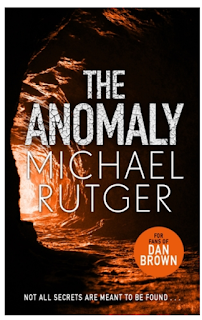It seems that, during my time at university, I was surrounded by literary geniuses who not only could teach extremely well (that I knew) but could write. Really write. Leone Ross. James Smythe. Ariel Kahn.
I was extremely excited to be reading Raising Sparks, for several reasons. First of all, even though I wasn't raised in a religious household, my family has a Jewish heritage - and if I carry anything from this with me (apart from my giant nose) is a sense of community. Therefore the topic already felt familiar.
But strange and exciting, too, which was my second reason. It's a country, a culture, a nation that I know very little about. Ariel studied in Israel in rabbinical seminary for three years, which clearly gave him a good insight. But it's clear he has done in-depth research before writing the book, because it feels full of knowledge and experience. It's incredibly visual too, which makes it feel like a real-life fairy tale. But I'm getting ahead of myself.
The heroine of Raising Sparks is 16-year-old Malka, who uncovers mystical powers in herself at the beginning of the story - powers that confuse and terrify her. This is why she flees her home and on her travels, she tries to discover her fate and what her powers really mean.
What did I like about it?
First of all, the soul of the author just burns through these pages. I have never felt an author care for their characters as much as Ariel does. Not just his characters, in fact, but for the story, the details and the endings especially. His love of writing shines bright as day - it's hard to explain, but it's true. He was fully invested in the story. And that gives a special power to the book.
I really liked his use of language too - he uses many comparisons and while some might say there are too many, they're extremely visual and they work with the story. A face like a sunset. Beads of sweat on eyelashes, like tear drops. Then there are his descriptions: not only visual, but involving all our senses. Example: I've never had hamentashen, yet when I read the passage about Malka preparing these biscuits I could smell them and taste them. Incredibly powerful.
And another thing - for me, this book was pure escapism. Truth is, during the time I was reading Raising Sparks, I was under quite a lot of work-related stress and had a ball in my stomach most of the time. Yet when I sat down on the tube and opened up my copy, I was whisked away in an instant. It's a beautiful, gripping story and almost fairy tale-like. It's magical realism at its best.
What was I not massively fond of?
Strangely enough, there's just one word I would cross out - one single word that jumped out at me as out of place and I didn't forget it. Page 87, Moshe, our second most important character:
"He dried his face on his T-shirt and looked at his watch. Shit! He was late for his shift at Lazlo's."
Bring on all the swearing normally, but this book is such a touching, innocent story that I felt that the 'shit' here wasn't necessary. I do believe it's the only swearword throughout, maybe that's why it felt odd.
There are a few loose ends too which I would have loved to have seen tied up. One is Malka's cooking career. I want to see her go back to Tel Aviv and amaze Rukh with her Bittersweet Home ice cream. Another is Vladek. Just Vladek in general. Love that guy.
But perhaps that's why sequels were invented. And if not, that's fine too. These loose ends don't leave me wanting - I'm just being greedy.
Overall...
Challenge yourself to learn something new and pick up this book. Open your heart to a beautiful story all about mysticism, coincidences, magic and reality. Open your eyes to some gorgeous imagery. To this wonderful author who I'm hoping will be writing many more such enjoyable works in the coming years.
I recommend this to anyone who has visited Israel; to anyone who wants to. To readers who enjoy a bit of fantasy, but don't mind the linger of a romantic story line. To those open to accepting magic and religion. To anyone with a big heart.
9/10



















